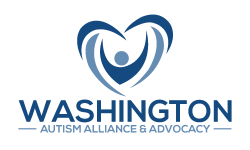People with disabilities frequently have serious dental problems and have difficulty in accessing dental services. Dental Education in Care of Persons with Disabilities (DECOD) is a special program of the School of Dentistry that treats persons with severe disabilities and prepares dental professionals to meet their special oral health needs. It is a major resource for Washington citizens who have moderate to severe disabilities affecting their ability to receive dental care and cannot obtain dental services in other community settings. DECOD serves primarily adults with developmental disabilities (including but not limited to cerebral palsy, autism, Down syndrome, and intellectual disability). The remaining patients have one of several designated acquired disabilities (e.g. spinal cord and traumatic brain injury, multiple sclerosis, stroke) requiring treatment supports not available in a traditional dental setting. The majority of patients receive Medical Assistance. The DECOD Clinic serves as a clinical training site for dental students, dental residents, fellows, dental hygiene students, and dental assisting students. The DECOD Program also provides lecture, video, and other educational materials to students and dental professionals in the area of special care dentistry. For persons with disabilities and medically compromised individuals regular dental care is vital to health and function. DECOD’s missions are to: Provide clinical dental services and essential diagnostic, emergency, and primary dental and oral health care to patients with developmental and acquired disabilities, To strengthen and expand patient care capacity across the state of Washington by training students in the delivery of care to those with disabilities and To enhance the quality of care provided to patients with special health care needs.
University of Washington DECOD Program (Dental Education in the Care of Persons with Disabilities)
What therapies/services do you provide?
Description

